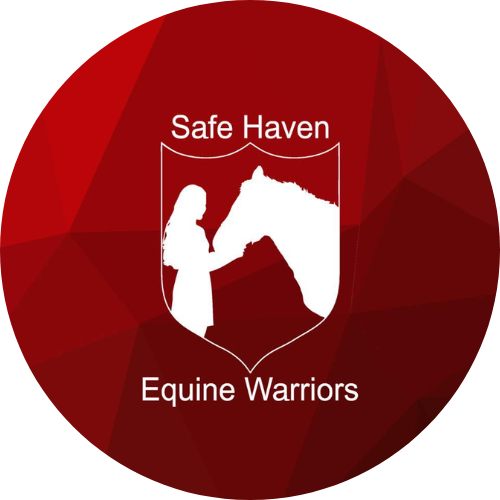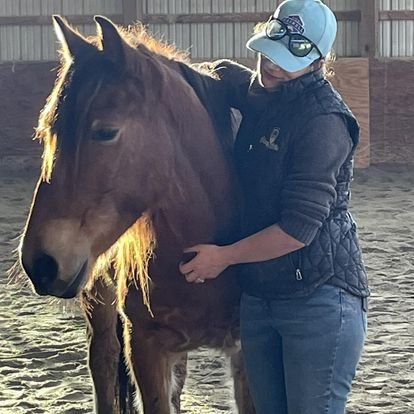
RESCUE:
Since 2017, Safe Haven Equine Warriors (SHEW) has rescued over 50 horses and re-homed more than 40 horses through adoption and foster homes.
Sometimes our charge is to rescue and provide the last act of kindness, humanely when recovery is not possible. Thankfully, most horses are able to enter into rehabilitation, re-training, and eventually be carefully re-homed.
How do horses come to SHEW? We regularly outbid kill buyers (meat men) at livestock auctions who purchase horses to be resold across the borders in Canada and Mexico where they are inhumanely processed for human consumption and leather goods in foreign markets.
Each year over 20,000 American horses will end up on dinner plates in Germany, Italy, Japan, China, Switzerland, and Mexico. Most are healthy before starting the hazardous, virus-infected, injury-ridden journey through the hands of kill buyers, scam dealers, and auction houses. Once a horse is in the slaughterhouse pipeline, there is no return.
Another way we support humans and horses is by being a safety net for horse owners in crisis. Sometimes, death, injury, illness, or financial hardship puts an equine in harm’s way. We offer owner surrender free of trauma or fear.

PHOTO: SUMMER BREEZE EYE TREATMENT 2022
REHABILITATE:
Horses coming from auctions and other sources usually haven't been cared for correctly. They often have respiratory infections, skin conditions, parasites, and even lice.
They are starving, injured, depressed, and frightened. When a horse comes into SHEW's care, it will spend the first 4-6 weeks in the quiet environment of our quarantine facility. There they will get rest, and medical care and begin a customized feeding plan specific to their needs —while not being an exposure risk to the rest of the SHEW and Safe Haven herd.
During this time, our veterinary team will evaluate and treat all medical needs, do blood work and fecal testing, x-ray or ultrasound where indicated, and start vaccines once the horses are stable enough.
Horses are cleared medically before continuing their rehab and retraining at the main farm. Rehab costs vary with an average of $2,000 for the first 30 days. In some cases where hospitalization is needed, the price may reach $8,000 or more per horse before returning to good health.
Being ever conscious of cost and responsible use of donor money, horses are only sent to hospitals in extreme cases where a good outcome and future are expected based on age and prognosis.

PHOTO: KODA 2023
RE-TRAIN:
Every horse that comes to SHEW has a unique background and set of challenges. They are all also working towards their own best outcome, which may be different based on illness, injury ,and disposition. Some come with a baseline of training, while others are totally feral and overwhelmed by domestic life. When it comes to starting and training horses there is no timeline, it takes as long as it needs to take. However, time and time again we see “troubled horses” transform with consistency, proper care, and respectful training principles to achieve their own best possible outcome.

PHOTO: SUMMER BREEZE ADOPTED 2023





